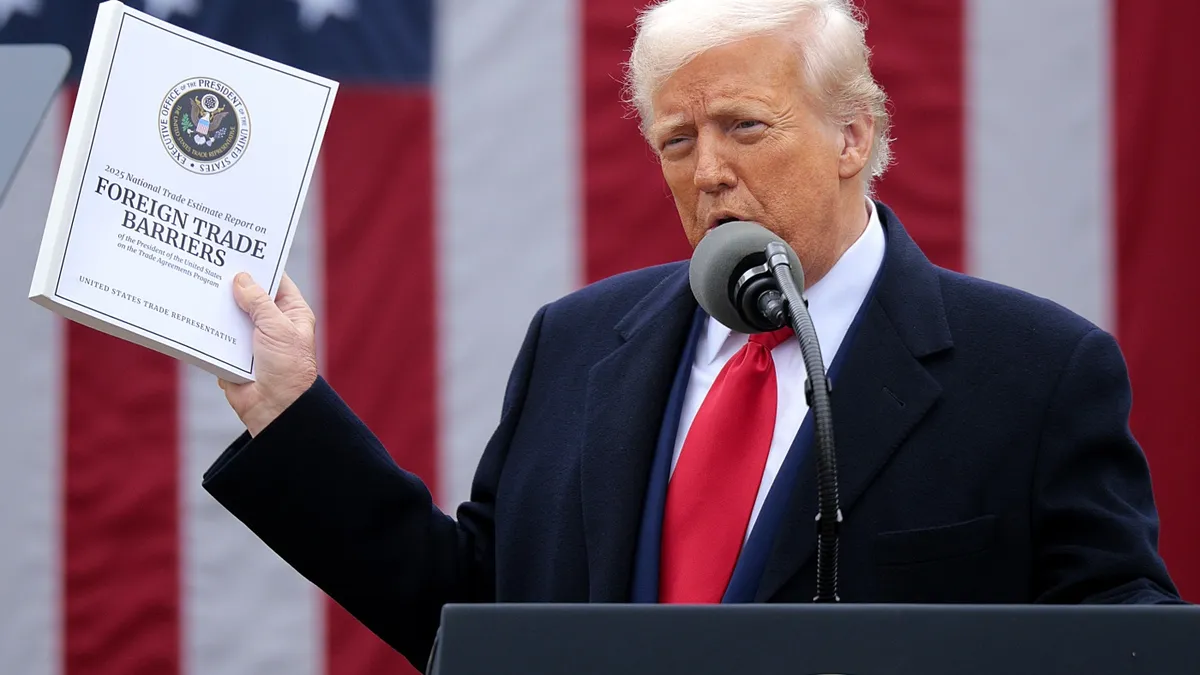
As the uncertainty surrounding the U.S. economy escalates, Wall Street is increasingly apprehensive about the potential loss of America's superpower status. The situation has prompted CEOs and business leaders to transition from denial and bargaining to public expressions of anger and depression. The initiation of chaotic tariffs by President Trump this spring has triggered panic among global investors, leaving the business community grappling with significant challenges.
The ongoing trade war, marked by a series of tariffs, is already inflating prices for both consumers and businesses. This economic turbulence is further straining the United States' international relationships. In addition to tariffs, corporate executives are closely monitoring the surging national deficit, which is projected to worsen due to the president's proposed budget that has already passed the House and is currently under Senate consideration.
Leading business figures are now voicing grave concerns about America's global financial standing. "We have to get our act together. We have to do it very quickly," stated JPMorgan Chase CEO Jamie Dimon during the Reagan National Economic Forum last month. Dimon emphasized his worries regarding the strength of the U.S. dollar, which has maintained its position as the world's dominant currency since the end of World War II. Almost 60% of foreign-exchange reserves held by central banks globally are in U.S. dollars, making its stability crucial for international economic relations.
Dimon's comments reflect a broader sentiment among executives who oversee the American financial system. They are often the first to detect shifts in the economy. This spring, many CEOs have experienced a journey that can be likened to the five stages of grief, as outlined by Dr. Elisabeth Kubler-Ross. This model describes a cycle of emotions: denial, anger, depression, bargaining, and acceptance.
Initially, many corporate leaders were in denial about the implications of tariffs. For instance, a Conference Board survey conducted in February revealed that CEO confidence was at a three-year high, despite the looming tariff threats. "They are not thinking so much about tariffs. They are thinking about deregulation and lower taxes," noted senior economist Stephanie Guichard at the time. However, as the situation evolved, CEO confidence saw a dramatic decline, marking the worst quarter-over-quarter drop since the organization began tracking this data 49 years ago.
In recent weeks, emotions have shifted among Wall Street leaders, moving towards anger and depression. Billionaire investor Ken Griffin, a notable Republican donor and Trump supporter, expressed concern at a Forbes conference, stating, "The administration's attempts to use tariffs come at a dear price to the U.S. economy and to the U.S. consumer." Griffin criticized President Trump for targeting Walmart's CEO after the retailer warned of impending price hikes due to tariffs, asserting that CEOs should be commended for their honesty.
In response to the growing concerns, White House spokesman Kush Desai defended the administration's position, claiming that Trump's budget bill will "turbocharge America's economic resurgence." Despite ongoing fears regarding tariffs, he noted that economic indicators have continued to improve.
Griffin's remarks encapsulate the emotional roller-coaster that Wall Street executives are experiencing amid uncertainty about the U.S. economy's future. Some CEOs are advocating for increased bargaining, particularly with China. Dimon, for example, has urged the U.S. to avoid escalating its trade war with one of its largest trading partners, noting that "they're not scared, folks." Currently, U.S. and Chinese officials are engaged in new trade negotiations in London, although many questions remain about the final form and costs of the tariffs imposed on nearly all imports.
Looking ahead, some financial leaders are cautioning that the U.S. may need to brace for an economic downturn. Goldman Sachs has projected a 35% chance of recession within the next year, a slight improvement from the 45% risk forecasted in April when Trump's initial tariffs shook global markets. However, as Goldman chief economist Jan Hatzius remarked, a 35% likelihood is still substantial, especially given the president's affinity for tariffs.
Although many leaders in Corporate America have been hesitant to criticize President Trump directly, fearing backlash akin to Walmart's experience, there is a growing consensus among even his allies regarding the potential negative impact of his policies on the U.S. economic outlook and its superpower status. Katie Koch, CEO of TCW, highlighted that while the United States represents less than 5% of the world's population, it contributes to 25% of the global GDP and 70% of the stock market. She cautioned against the narrative that suggests America is losing ground and requires drastic policy changes.